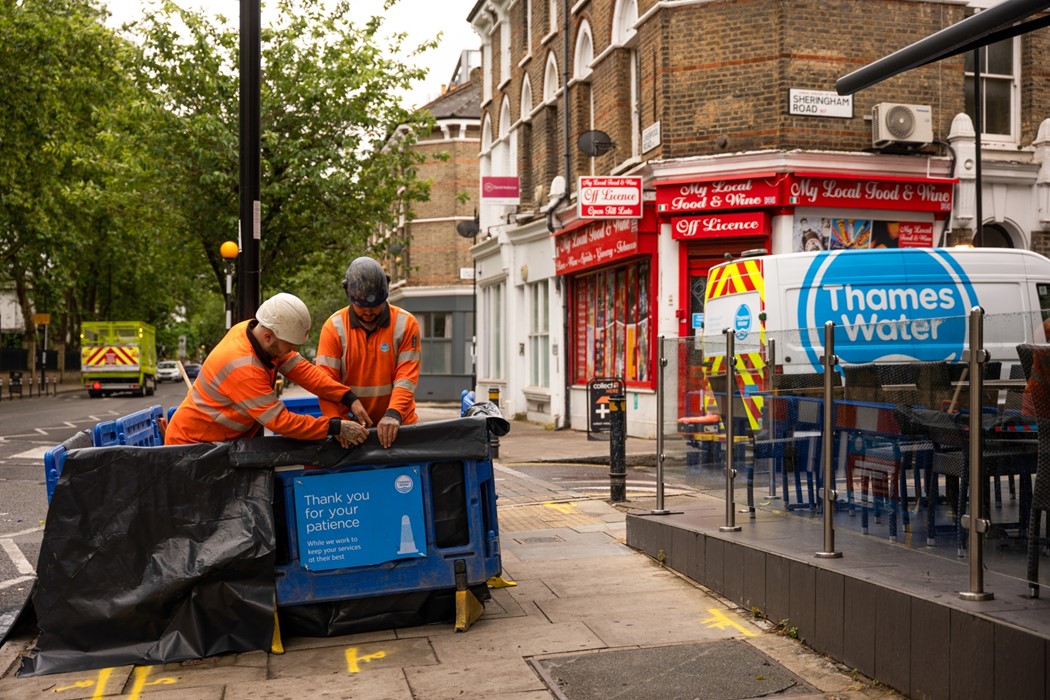Thames Under Pressure to Find a Rescue Plan After KKR Pulls Out
Jun 03, 2025 by Bloomberg(Bloomberg) -- Thames Water is running out of options for the equity funding it desperately needs after preferred bidder KKR & Co. pulled out of a rescue deal.
Thames is now focusing on talks with senior creditors, including Silver Point Capital and Elliott Management, who had been preparing their own plan. Moving forward with this option hinges on finding an agreement with the regulator Ofwat.
Thames is already eating into an emergency loan it was granted by senior creditors to prevent its cash drying up and is scrambling to find fresh equity. The company needs to fund a turnaround plan that will reduce its debt pile that stands at nearly £20 billion ($27.1 billion).
Should the equity-raise process fail, Thames could still risk falling into a special administration regime, or SAR, a temporary state-supervised process akin to insolvency designed for bankrupt businesses that provide critical services.

Thames didn’t disclose details of why KKR could no longer participate in the process. KKR and a group of the company’s senior creditors had submitted their plans for fixing Thames to regulator Ofwat on Friday. The discussions fell apart on the first day, according to people familiar with the situation who asked not to be identified discussing confidential matters.
A spokesperson for water regulator Ofwat said theyare liaising with Thames on next steps to ensure the equity raise process continues and will secure improved financial resilience and operational performance.
Responding to the news that KKR had dropped out, Castle Water said it’s ready to renew its equity bid for Thames, confirming an earlier Bloomberg News report.
Castle had put in an offer to provide £4 billion but was knocked out of the process when KKR was picked. Castle — a relatively small firm that bought Thames’ non-household water and sewerage retail business in 2016 — said at the time that it’s backed by The William Pears Group, a financing and real estate firm that would provide funding.
Concerned Lawmakers
Lawmakers had already raised concerns about the process after Thames quickly eliminated options, picking KKR as a preferred bidder. Thames Water bosses appeared before a group of MPs last month and the committee chair turned the spotlight onto the government on Tuesday for failing to adequately protect consumer interests.
“The Government has shied away from acknowledging the potential impact of this scenario on the public finances and must ensure that any takeover is in the public interest and does not line the pockets of financial institutions further to the detriment of customers and operational performance,” Alistair Carmichael, chair of the government’s Environment, Food and Rural Affairs Committee said in a statement.
“In our evidence session with Thames Water bosses in May we raised serious concerns that Thames had only pursued one bidder at an early stage for its takeover bid, against the wishes of Ofwat, and highlighted the risks this could pose if KKR chose not to proceed,” he said. “Unfortunately, our concerns have been realised, putting Thames in a perilous position.”
Environment Secretary Steve Reed told LBC Radio that Thames Water was stable but that the government is keeping a close eye on it.
Thames has been on a long downward slope. The company has been in the hands of its creditors after previous shareholders called the firm uninvestible, writing off their stakes. The utility, which supplies about a quarter of the UK’s population, came close to running out of money several times before it finally unlocked an emergency loan from its senior creditors in March.
Ofwat has been criticized for allowing Thames to slide so far into crisis. The regulator needs to take a more supervisory role akin to the banking sector, according to interim findings from the Independent Water Commission published Tuesday. The final report, due later this summer, is widely expected to overhaul the industry.
Thames is one of the worst offenders when it comes to sewage leaks. The company was fined £122.7 million by Ofwat following investigations into the company’s handling of waste water and dividend payments. The regulator is keen to show it has the situation under control and is holding water utilities to account for their failings.
Thames Water’s bonds edged lower, with the note due in 2034 quoted down 2.3 cents on the euro at around 67, according to prices compiled by Bloomberg. Trading in the utilities debt has been slim, given the senior creditors directly in talks with the company cannot trade them as they have access to privileged information.
“Heightened uncertainty and the potential for higher Class A debt haircuts under any of these alternative scenarios are likely to further weigh on Thames’ bonds, while drawing down the second tranche of the liquidity extension could extend the process until May 2026,” according to Paul Vickars, BI credit analyst.
©2025 Bloomberg L.P.
By


















